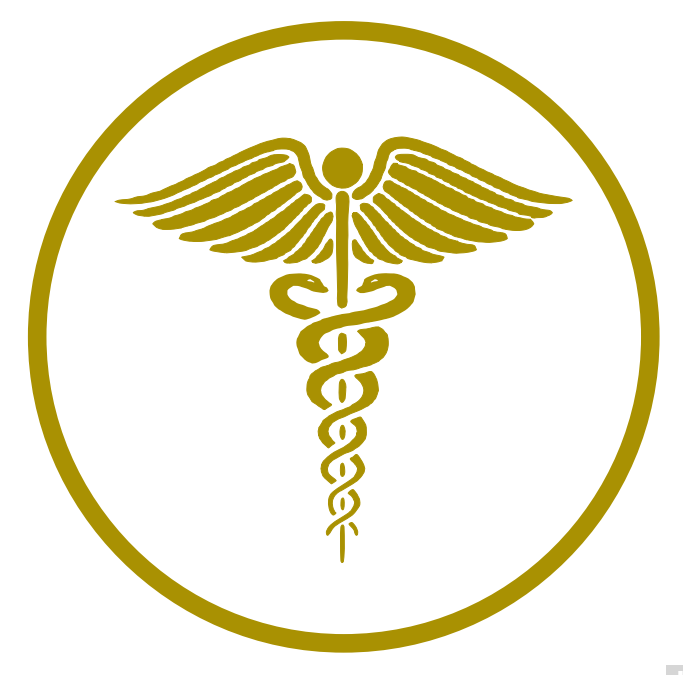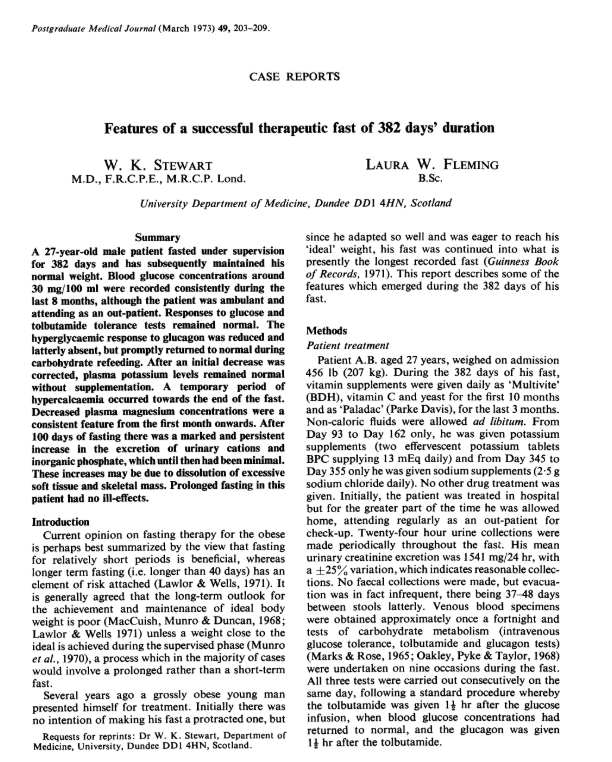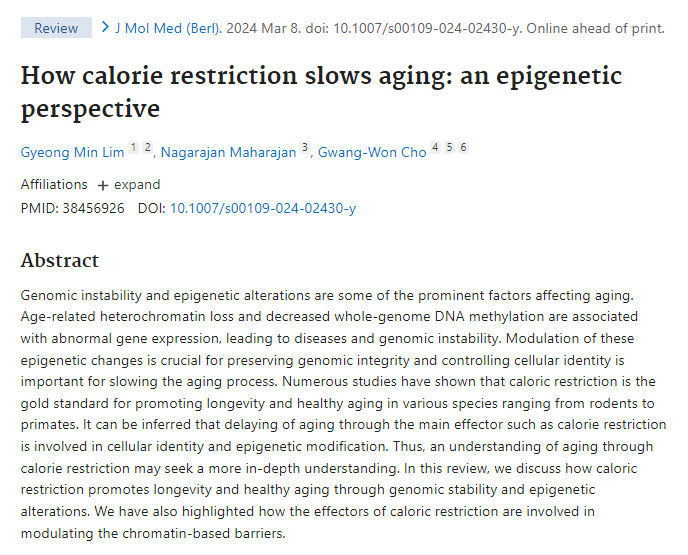Fasting is one of the most underutilized tools and all of medicine.
Modern chronic illness is caused by the way we live. We live in a world that is dramatically different from the world that our hunter gatherer ancestors evolved in. Our ancestors went to bed in darkness when the sun went down and woke up to the morning’s light, while we live in a world of electronic light - playing on phones before going to bed, and waking before the sun comes up. Our ancestors walked approximately 14 miles a day hunting and gathering, while our modern work has us spending our days sitting in a chair in front of a computer. And then there’s food.
We humans evolved in a world where food was scarce. Although a band of humans would occasionally make a large kill and eat well for a time, most of human history involves humans scavenging small bits of calories wherever we could. As a result, our bodies evolved to function and survive the long stretches where we didn’t have reliable sources of nutrition.
Now, food is everywhere. The options for meeting our caloric needs are wherever we go in the forms of drive-through restaurants, food delivery, prepared meals, grocery stores, and vending machines. Indeed, when I bring up the topic of fasting, a large amount of my patients cannot remember the last time they missed a meal - it is not uncommon for some humans to reach adulthood without ever missing a meal something that would be unheard of in our evolutionary past. While this is a blessing from an evolutionarily standpoint as we have all the calories we need to reproduce and grow, but there is a downside - constantly eating can wreak havoc on our metabolic health and GI tract.
Constant Eating Hurts The Body
Let’s start with GI health. Eating frequent meals can simply overwork your GI system because there is not enough time for the gut to clean, repair and reset for the next meal. (This is the reason that so many body builders and athletes eventually develop GI problems - they’re constantly eating to gain muscle.) You see, every time that you eat, the body goes into “digest mode“ where it is focused on releasing digestive enzymes, breaking down foods, and absorbing nutrients. It takes about 90 minutes for “digest mode” to switch to “clean up” mode where the body moves the material from the upper intestines downward to the colon for elimination. When this clean up mode doesn’t occur enough (as when a patient eats 3 small meals with snacks in between), we can have an unhealthy buildup of bacteria in the small intestines, a condition called Small Intestinal Bacterial Overgrowth. SIBO can lead to a host of distressing symptoms such as irregular stools, painful bloating after you eat, heartburn nausea and abdominal pain are all frequent with this disorder.
Constant eating also leads to metabolic damage due to the fact that the body gets easily overwhelmed in the face of extra nutrients. Because our bodies evolved in a world of minimal calories, our default response to extra food is to quickly store the extra energy as body fat, or as a storage form of sugar called glycogen in the liver. These changes are so common that we’ve come up with a new medical term “Metabolic Syndrome” to characterize the medical problems caused by excess body fat and fatty liver disease. Doctors have made the argument that the majority of chronic diseases, diabetes, obesity, hypertension, heart disease, cancer and dementia can all be led back to the metabolic damage caused by our modern caloric surplus.
The Benefits of Fasting
Fasting has many immediate benefits. Most of my patients find that they are cognitively sharper and find that their fasting days are more focused and efficient. They feel lighter and often report their mood is improved. Those with GI symptoms typically find their symptoms are 75% reduced on fasting days. After a few weeks, they see weight loss.
Medical studies consistently show that fasting improves health in a variety of ways. Caloric restriction leads to longer lifespans in every animal it has been studied in, including humans. Fasting can lower depression, fix hypertension, help regulate hormones and much more. In my office, I’ve seen fasting completely resolve cases of SIBO, and help put autoimmune conditions in remission. Adding fasting to a good treatment plan almost always makes a patient heal quicker.
Another benefit of fasting is that it is completely free. This is a solution to health problems that doesn’t require swallowing supplements or prescriptions, there’s no app to buy and no course to follow. You save money by eating less, you gain time in your day that would be spent eating, and leave less of an impact on the environment.
Personally, I like to fast on the busiest day of my week, usually Tuesday, which allows me to work or rest during lunch rather than having to worry about taking time to eat.
Would you like help learning how to safely fast? I'm here to help.
How to Fast
There are many ways to fast, and there isn’t a one-size-fits-all prescription. I generally ask my patients to begin with a single 24 hour fast as a trial. It’s much easier than you might think. You simply start your fast after dinner, and don’t eat until dinner the next day. During the breakfast and lunch that you miss you simply drink black coffee, green tea, bone broth or water. Green tea in particular is fantastic for reducing hunger and has many health benefits. Most patients are reluctant to start, but most find that this fast really wasn’t difficult at all and find it enjoyable to do a weekly fast. The fun really starts once they start losing weight and seeing their cholesterol, blood pressure and blood sugar numbers drop.
For those that struggle, I simply have them lower their weekly fasting period to either 16 or 20 hours, and then slowly work their way towards a 24 hour fast. In others who have built up more chronic illnesses or have other medical problems, a weekly 24 hour fast isn’t enough for a patient to lose weight and feel better. The fix that works for many in this situation is to simply increase the fast to 32 hours once weekly, or add a second 24 hour fast.
If you are interested in other fasting regimens I highly recommend the book “Complete Guide To Fasting: Heal Your Body Through Intermittent, Alternate-Day, and Extended Fasting” by Dr. Jason Fung.
How Long Can I Safely Fast?
A paper was published in 1973 described a 27 year old man who, at the weight of 456 pounds, began fasting under medical supervision. As the authors describe, he simply got tired of being morbidly obese and decided that any risks of long term fasting would be better than the life he was living.
He began fasting, and steadily saw weight loss -about 0.7 pounds per day. His doctors found no medical problems, that he had adapted well to the fast and observed that his health was improving. So he kept going, and going and going.
382 days later he weighed 180 pounds. He had lost 276 pounds. During his fast, he ate no food, and was given only a daily multivitamin and occasional electrolytes.
The body has the amazing ability to metabolize and burn our own body fat for energy, but only if we stop constantly feeding it.
Fasting Is Safe
These days, it seems that everyone is quick to sell a new supplement or fad diet before answering the question: “Is it safe?” Meanwhile, our job as doctors means that we are required to make sure something is more likely to help our patients than hurt them, and fasting is no exception.
Thankfully we have more than a single case report to show that fasting is safe. In one example, a group of researchers followed 14 men as they went through an 8 day water fast. They collected all sorts of information about their physical, metabolic and emotional health. In the end, they concluded that fasting was both safe and beneficial, and saw no sign of psychological distress or worsening of anxiety or depression.
Most of my patients do fantastically with one or two 24 hour fasts scheduled weekly, and for most people I don’t see a need to push for longer duration fasts. However, some of my patients have safely fasted for several weeks at a time without any ill effects. In these cases hunger typically subsides by day 4-5. The tricky part is actually in slowly reintroducing food. An expert on long term medical fasts that I spoke with endorses a specific re-feeding process that lasts for half the days that you fast: if you were to fast for 10 days, then you would plan to have a re-feeding process of slowly increasing daily calories of 5 days.
Two Years of Calorie Restriction: Live Healthier, Live Longer.
A wonderful study published in 2015 looked at what happened to healthy adults who restricted their calories by 25% for a period of 2 years. Researchers divided 218 healthy adults into two groups, one in which they ate their normal diet, or a calorie restricted diet where their normal calories were reduced by 25%. They even came up with a cute acronym: CALERIE (Comprehensive Assessment of Long term Effects of Reducing Intake of Energy).
The patients on the 25% calorie restricted diet did fantastic!
Weight Loss. Patient’s initially lost about 3 pounds of body fat 6 months into the study. The weight loss increased to approximately 4 pounds at 12 months then stabilized. Meanwhile, the control group gained weight over the study.
There were no problems related to eating disorders.
No problems with mood, hunger, sexual or cognitive function.
The calorie restricted patients all got healthier. Their cardiometabolic risk factors all improved:
lower total cholesterol and triglycerides
Improved HDL.
Lower blood pressure.
Improved glucose control and insulin resistance
Their resting metabolic rate decreased
Their core body temperature was not significantly changed.
No problems related to thyroid function
The inflammatory markers TNF alpha and CRP reduced
Although there was a minor loss of muscle mass there was no loss of muscle strength
If the good news from the study ended there, it would still be a happy ending. However, there was more.
In a followup report, researchers analyzed DNA methylation patterns of the adults who had restricted their calories. They found that caloric restriction diet had actually slowed the pace of aging in the study participants..
We all want to live as long as we can, provided that we are healthy.
The good news is that fasting can help you do both. Maybe it’s time you tried it.
Are you ready to live healthier and longer? Schedule an appointment today.





